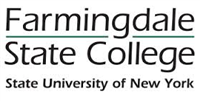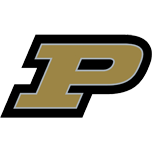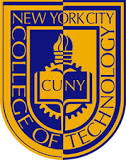What do they do?
Apply theory and principles of mechanical engineering to modify, develop, test, or adjust machinery and equipment under direction of engineering staff or physical scientists.
Also known as:
Engineering Laboratory Technician (Engineering Lab Technician), Engineering Technical Analyst, Engineering Technician (Engineering Tech), Engineering Technologist, Manufacturing Engineering Technician (Manufacturing Engineering Tech), Mechanical Designer, Mechanical Engineering Technician (Mechanical Engineering Tech), Mechanical Technician (Mechanical Tech), Process Engineering Technician (Process Engineering Tech), Process Technician, Research and Development Technician (R and D Tech)
-
4.3%
Change
Ranks #45 in job growth rate230Job Openings
Ranks #4 in net job growth
-
Ferris State University
Big Rapids, MI
-
Farmingdale State College
Farmingdale, NY
-
Art Center College of Design
Pasadena, CA
-
Purdue University-Main Campus
West Lafayette, IN
-
Rochester Institute of Technology
Rochester, NY
Looking for colleges that offer a specific major? Use the College Match Tool to find your best-matched schools and discover your estimated Net Price!
- Doctorate or Professional Degree (1%)
- Master's degree (3%)
- Bachelor's degree (18%)
- Associate's degree (20%)
- Some college, no degree (30%)
- High school diploma equivalent (24%)
- Less than high school diploma (4%)
Most Popular Majors that prepare Mechanical Engineering Technologists and Technicians
-
#1
-
Degrees Granted
827
-
Female Students
58
-
Male Students
769
-
Median Starting Salary
$58,100
-
-
#2
-
Degrees Granted
125
-
Female Students
21
-
Male Students
104
-
Median Starting Salary
$58,100
-
-
#3
-
Degrees Granted
89
-
Female Students
13
-
Male Students
76
-
Median Starting Salary
$56,989
-
People in this career often have these skills:
- Reading Comprehension - Understanding written sentences and paragraphs in work-related documents.
- Active Listening - Giving full attention to what other people are saying, taking time to understand the points being made, asking questions as appropriate, and not interrupting at inappropriate times.
- Critical Thinking - Using logic and reasoning to identify the strengths and weaknesses of alternative solutions, conclusions, or approaches to problems.
- Speaking - Talking to others to convey information effectively.
- Complex Problem Solving - Identifying complex problems and reviewing related information to develop and evaluate options and implement solutions.
- Writing - Communicating effectively in writing as appropriate for the needs of the audience.
- Operations Monitoring - Watching gauges, dials, or other indicators to make sure a machine is working properly.
- Judgment and Decision Making - Considering the relative costs and benefits of potential actions to choose the most appropriate one.
People in this career often know a lot about:
- Engineering and Technology - Knowledge of the practical application of engineering science and technology. This includes applying principles, techniques, procedures, and equipment to the design and production of various goods and services.
- Mechanical - Knowledge of machines and tools, including their designs, uses, repair, and maintenance.
- Design - Knowledge of design techniques, tools, and principles involved in production of precision technical plans, blueprints, drawings, and models.
- Mathematics - Knowledge of arithmetic, algebra, geometry, calculus, statistics, and their applications.
- English Language - Knowledge of the structure and content of the English language including the meaning and spelling of words, rules of composition, and grammar.
- Computers and Electronics - Knowledge of circuit boards, processors, chips, electronic equipment, and computer hardware and software, including applications and programming.
People in this career often have talent in:
- Oral Comprehension - The ability to listen to and understand information and ideas presented through spoken words and sentences.
- Written Comprehension - The ability to read and understand information and ideas presented in writing.
- Information Ordering - The ability to arrange things or actions in a certain order or pattern according to a specific rule or set of rules (e.g., patterns of numbers, letters, words, pictures, mathematical operations).
- Near Vision - The ability to see details at close range (within a few feet of the observer).
- Oral Expression - The ability to communicate information and ideas in speaking so others will understand.
- Problem Sensitivity - The ability to tell when something is wrong or is likely to go wrong. It does not involve solving the problem, only recognizing that there is a problem.
- Deductive Reasoning - The ability to apply general rules to specific problems to produce answers that make sense.
- Inductive Reasoning - The ability to combine pieces of information to form general rules or conclusions (includes finding a relationship among seemingly unrelated events).
- Speech Recognition - The ability to identify and understand the speech of another person.
- Category Flexibility - The ability to generate or use different sets of rules for combining or grouping things in different ways.
- Number Facility - The ability to add, subtract, multiply, or divide quickly and correctly.
- Selective Attention - The ability to concentrate on a task over a period of time without being distracted.
- Written Expression - The ability to communicate information and ideas in writing so others will understand.
- Mathematical Reasoning - The ability to choose the right mathematical methods or formulas to solve a problem.
- Flexibility of Closure - The ability to identify or detect a known pattern (a figure, object, word, or sound) that is hidden in other distracting material.
- Visualization - The ability to imagine how something will look after it is moved around or when its parts are moved or rearranged.
People in this career often do these activities:
- Assemble equipment or components.
- Explain engineering drawings, specifications, or other technical information.
- Estimate technical or resource requirements for development or production projects.
- Test products for functionality or quality.
- Review technical documents to plan work.
- Provide technical guidance to other personnel.
- Test characteristics of materials or structures.
- Create graphical representations of mechanical equipment.
- Analyze test or validation data.
- Document design or operational test results.
- Document technical design details.
- Evaluate designs or specifications to ensure quality.
- Monitor the productivity or efficiency of industrial operations.
- Design industrial equipment.
- Analyze green technology design requirements.
- Prepare contracts, disclosures, or applications.
- Conduct quantitative failure analyses of operational data.
- Recommend technical design or process changes to improve efficiency, quality, or performance.
- Test performance of electrical, electronic, mechanical, or integrated systems or equipment.
- Create graphical representations of industrial production systems.
- Estimate operational costs.
- Schedule operational activities.
- Assist engineers or scientists with research.
- Analyze costs and benefits of proposed designs or projects.
This page includes data from:

 Occupation statistics: USDOL U.S. Bureau of Labor Statistics Occupational Employment Statistics
Occupation statistics: USDOL U.S. Bureau of Labor Statistics Occupational Employment Statistics









